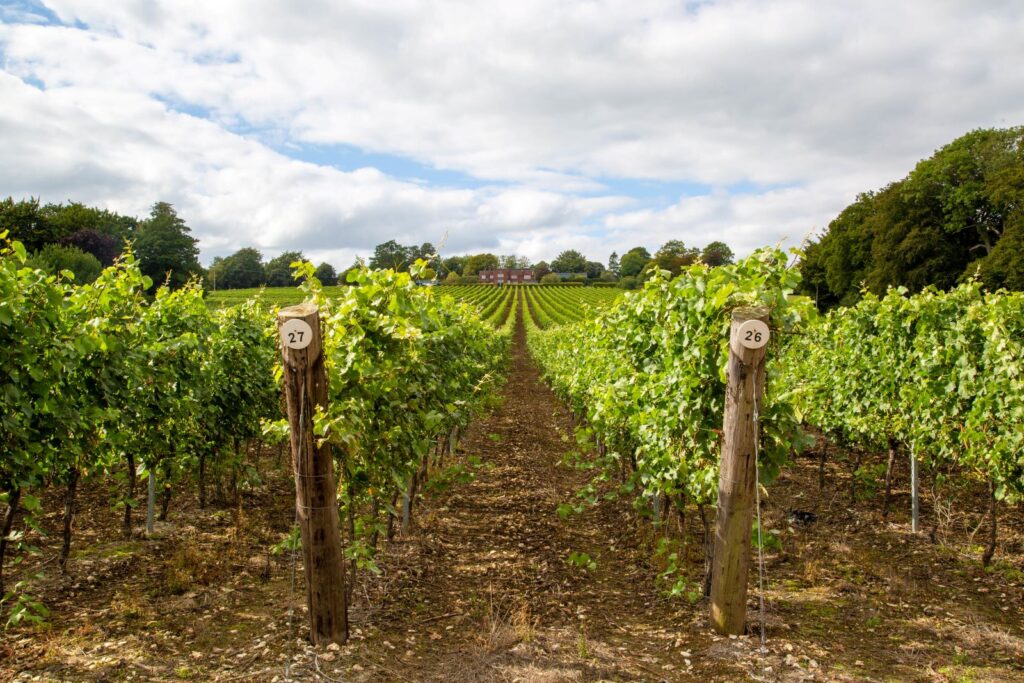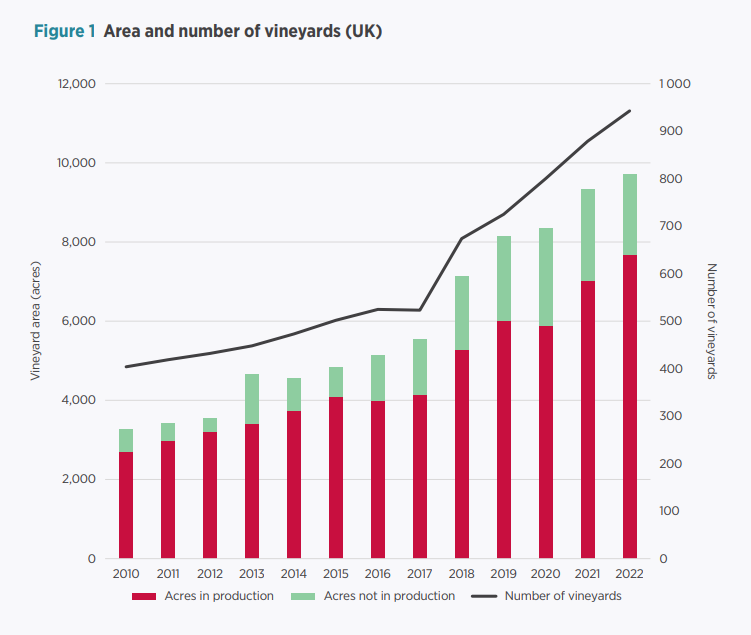Viticulture report reveals accelerated investment in UK wine sector
19th July 2023
The British wine industry is one of the fastest-growing in the world with just under £480 million invested in vineyards and wineries over the past five years, as demand for English wine rises to unprecedented levels, a recent viticulture report has revealed.

There are now over 900 vineyards in the UK, covering just under 10,000 acres and producing in excess of 8 million bottles of wine on average. The number of vineyards jumped by 80% in the last five years and has tripled over the past two decades, as Britain’s climate is becoming increasingly more favourable to wine production.
Wineries have also seen a rise over recent decades, with the UK now boasting twice as many wine processing facilities as 20 years ago to satisfy a growing thirst for English wine.
The work published by property consultants Strutt & Parker’s viticulture group highlights the level of investment channelled into the UK wine sector between 2018 and 2022, a period of rapid expansion.
Although the UK is still well behind prominent wine-growing countries in terms of area under vine, due to accelerated investment from aspiring vineyard owners and global brands alike, its total area is expanding faster than in any of the top 25 wine-producing countries of the world.

Source: Strutt & Parker Summer 2023 Viticulture Report
English wine has also been climbing onto the map of internationally acclaimed produce, with British producers claiming a record 143 medals at the recent Decanter World Wine Awards, including ‘best in show’ for Gusbourne’s Blanc De Blancs 2018.
Nick Watson, head of viticulture for Strutt & Parker, revealed investment in UK wine is now close to an astounding half a billion pounds.
“Interest in the British wine sector is as strong as we can remember and over the past 12 months the number of calls we have received from people interested in either buying a vineyard or establishing a new one has tripled,” he said.
“There have been some exciting examples of high-profile established brands such as Taittinger, Pommery and Freixenet investing in the UK over recent years. But the majority of investors in the sector tend to be people who have had a successful career in business and are looking for a change in direction.
“They view a vineyard as an investment which they hope will be financially sustainable, but also enjoyable,” Mr Watson added.
An industry on the rise
Establishing a vineyard is a venture that requires deep pockets, with the price of land with suitable conditions for vines ranging from £16,000 to £20,000/acre. Once established, vineyards can sell for more than £35,000/planted acre, although it is not a quick turnover – vines can take up to five years to reach full productivity.
Therefore, a successful viticulture business requires careful planning and sizeable funds. There is also very little land suitable for vine growing on the market, and buyers often have to negotiate with landowners of suitable sites to sett by offering a premium.
However, despite challenges, the number of people seeking to buy land on which to establish vines is on the rise. As English sparkling wine continues to demonstrate its exceptional qualities on the international stage driving up sales, the future of the wine industry in the UK is bright.
Land suitable for growing vines is mostly found in the south east of England, with the best winegrowing regions being East and West Sussex, Kent, Surrey and Hampshire. Ideal sites are less than 100m above sea level, have free-draining soils, gentle south-facing slopes that are not susceptible to late frosts or strong winds, and high average temperature and sunshine hours.
According to Strutt & Parker, farmland values in the south east of England have risen over the past 12 months to £10,000-12,000/acre, with sites that have potential for vineyard establishment often selling for £16,000-£20,000/acre.
Where buyers are only looking to purchase a small plot of 10-12 acres, which is the minimum land needed to establish a vineyard as a viable business, prices can hike up to £25,000/acre. Strutt & Parker explains this is due to the base value becoming an amenity value and also increased competition for smaller plots of land.
Alongside the prime UK winegrowing regions, there is also rising interest in Norfolk, Suffolk and Essex, which share many of the same characteristics as the South East and offer more untapped potential for planting vines.
Read the full Summer 2023 Viticulture Report here.
